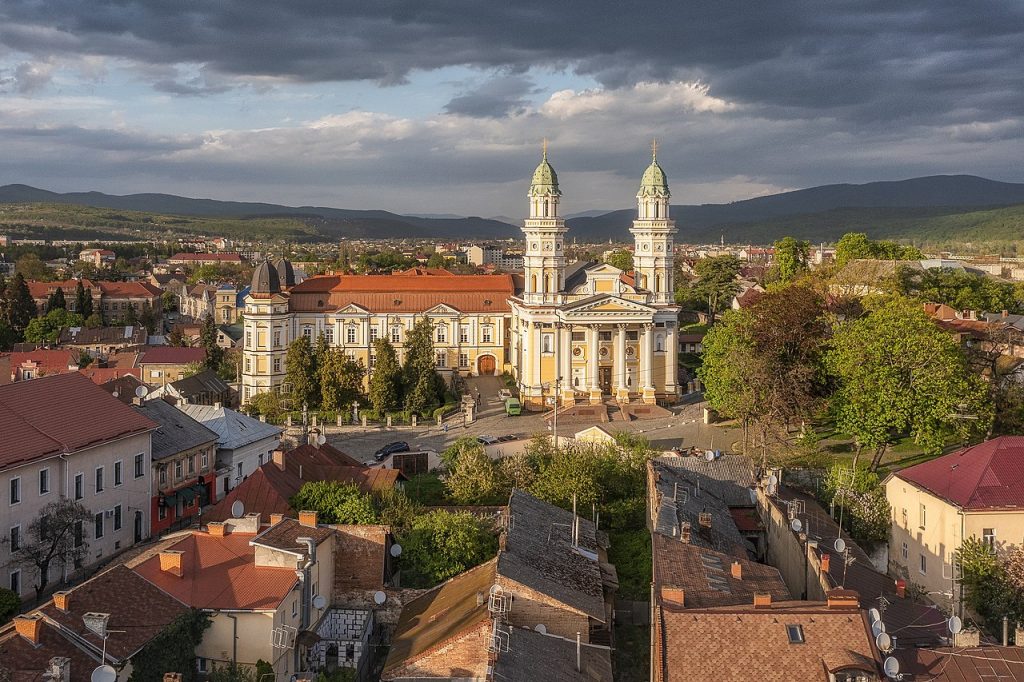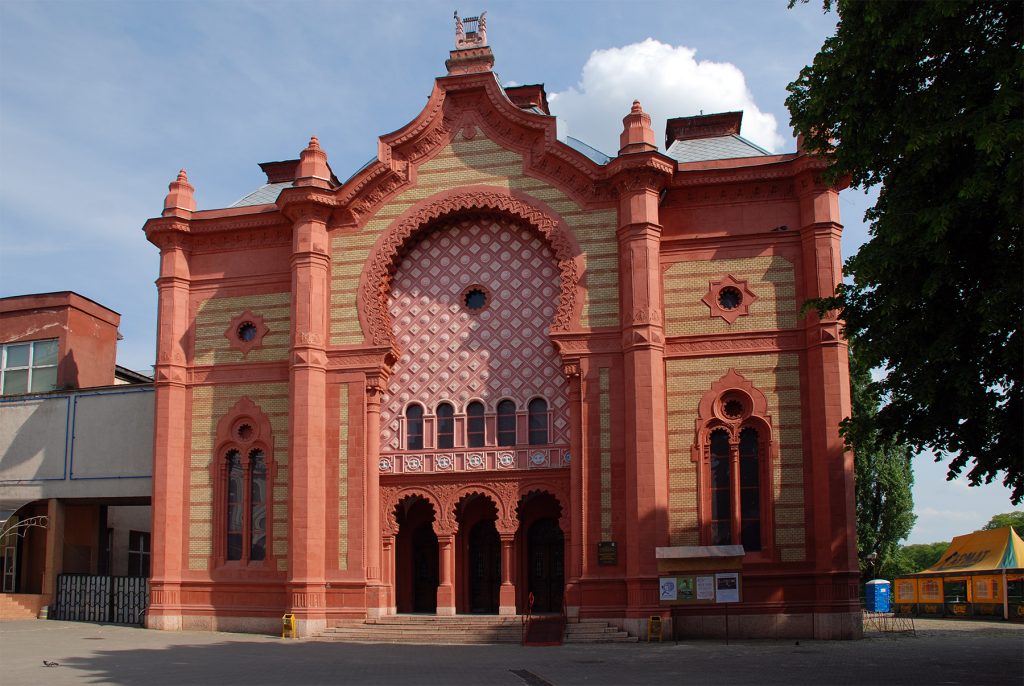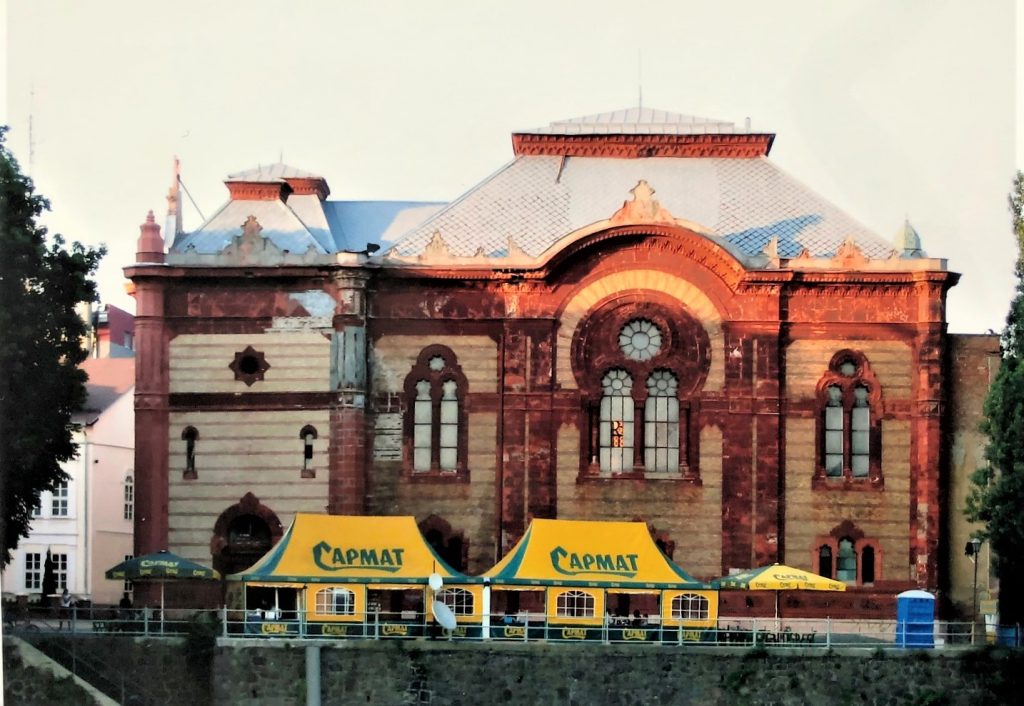
The terrifying war against Ukraine changes, of course, the function of these pages devoted to the Jewish cultural heritage of that country. Many of the places mentioned were razed to the ground by bombs. While these pages are not intended in the present time for tourism, they may be useful to researchers and students as historical references. References to so many painful histories during the pogroms and the Shoah, but also to the glorious history of Ukrainian Judaism, in its cultural, religious and Zionist dimensions. Wishing the Ukrainian people a speedy end to these atrocities of which they are victims.

The Jewish presence in Uzhhorod probably dates from the 16th century and has been a recognized center of study for the presence of numerous rabbinical referents.
Intellectual growth
Among them, Solomon Ganzfried (1804-1886), author of the Kitsur Shulkhan Arokh, which is still considered today as a reference work. An intellectual development encouraged by a Hebrew printing press present since 1864, reflected by the different Orthodox and Hasidic movements and their written production, Jewish schools and yeshivoth.

In 1904, the beautiful synagogue of Uzhhorod was inaugurated. Built by architects Gyula Papp and Ferencs Szabolcs, it is constructed in a Neo-Byzantine style.
Expulsions and deportations
When the city came again under Hungarian control (which was the case prior to WWI) after the Munich accords and the German attack on Czechoslovakia, anti-Jewish measures were taken and Polish Jews were expelled to their homeland.
In 1944, a massive deportation to Auschwitz was organized in Transcarpathia. Thus, if in 1930 there were 7,357 Jews in Uzhhorod, after the expulsions and especially the deportations, only a few hundred returned to the city following the war.
Rebirth of Jewish life
In 1947, the neo-Byzantine style synagogue was transformed into a concert hall by the Soviet authorities. The building is intact, and a Beth Chabad now provides prayers there. The community of Oujhorod today centralizes Jewish activities for the towns of the region.